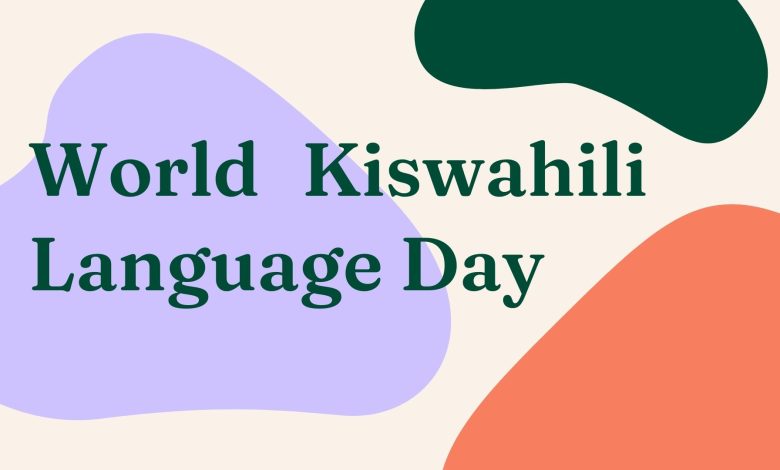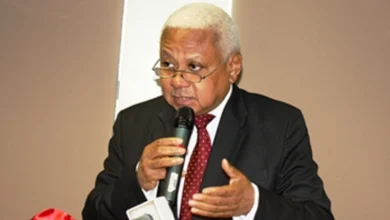Kiswahili unlocks jobs for Tanzanians

TANZANIA: AS the government continues to implement various initiatives to promote Kiswahili, the language is increasingly creating employment opportunities for Tanzanians both at home and abroad.
According to the Executive Secretary of the National Swahili Council (BAKITA), Ms Consolata Mushi, over 170 Tanzanians are currently self-employed in different countries, teaching Kiswahili, a development that reflects the rising global demand for Africa’s most widely spoken language.
She noted that the growing opportunities align with Kiswahili’s increasing international recognition, particularly following the United Nations Educational, Scientific and Cultural Organisation’s (UNESCO) declaration of July 7 as World Kiswahili Language Day in 2021.
This year’s celebration will be marked at national level next week in Zanzibar under the theme “Kiswahili, for Peace and Unity.”
Ms Mushi said the number of Tanzanians engaged in Kiswahili instruction abroad is expected to increase significantly in the coming years.
“More than 170 Tanzanians are teaching Kiswahili in various countries. We have written to our embassies abroad requesting data on Tanzanians currently engaged in Kiswahili teaching, as well as information on existing teaching opportunities, to help facilitate the deployment of more educators,” she said.
She further noted that technological advancements have made it easier for Tanzanians to reach international learners through digital platforms.
“This digital approach will not only expand access but also empower youths and other Tanzanians to earn an income by teaching Kiswahili,” Ms Mushi added.
With global demand for Kiswahili on the rise, Tanzanian institutions are stepping up efforts to formalise and expand Kiswahili education, with Mzumbe University announcing plans to introduce its first Master’s Degree programme in the language.
Assistant Lecturer at Mzumbe University, Ms Afroncina Ambrose, said the planned programme will be delivered remotely, allowing students across the country particularly those who are already employed to pursue their studies without interrupting their work schedules.
“The programme will be accessible online, providing flexibility for working professionals and learners in remote areas to advance their education,” she said.
Ms Ambrose noted that the opportunity is not limited to language scholars alone, as professionals from various sectors can also enhance their careers by mastering Kiswahili.
In a related development, a Lecturer at the University of Dar es Salaam, Dr Mussa Hans, said that universities are not only training grounds but also centres for research and innovation in Kiswahili.
“Kiswahili is now being used to study and describe itself, its structure, its growth and its cultural significance. This reflects a deepening academic commitment to the language,” said Dr Hans.
He stressed the importance of strengthening Kiswahili proficiency, encouraging the use of reference tools such as dictionaries, noting that no one knows everything.
Dr Hans added that Kiswahili is now used to express a wide range of subjects, including law, agriculture and more.
“We use the opportunity of World Kiswahili Day to engage in academic discussions and our students gain access to numerous research topics related to the Swahili language and its rich cultural heritage,” he explained.
Both Ms Mushi and Ms Ambrose highlighted the importance of speaking and writing proper Kiswahili, especially in formal settings such as public addresses or published works.
“When Tanzanians misuse the language, it damages its integrity. We must lead by example,” Ms Mushi said.
Ms Ambrose added that many young people wrongly assume English is the only language that shows intelligence or prestige.
“What people don’t understand is that the way you speak affects how you write. If you can’t speak formal Kiswahili, you likely can’t write it either and that can cost you job opportunities,” she said.
She warned that excessive use of street Kiswahili without understanding or using formal language affects how others perceive one’s competence.
“We need to invest in formal Kiswahili learning, especially if we want to compete globally or represent the country abroad,” said Ms Ambrose.
ALSO READ: Winners of the Safal Kiswahili Prize for Africa 2024 unveiled in Dar
As part of the World Swahili Day celebrations, Tanzania has lined up a weeklong series of events.
The main celebration will be officiated by the President of Zanzibar, Dr Hussein Ali Mwinyi, as Guest of Honour, recognising Zanzibar’s critical role in shaping Swahili’s historical and linguistic roots.





